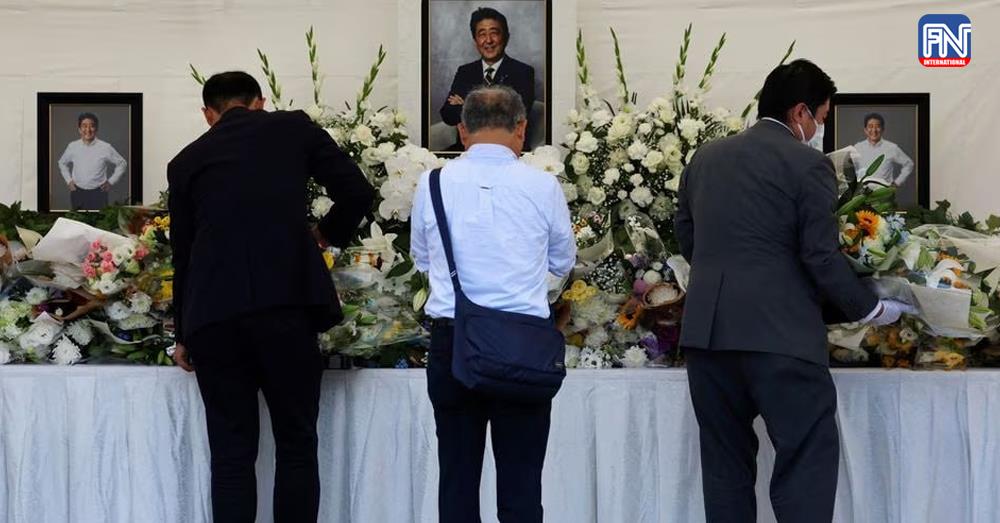TOKYO, July 8 (Reuters) - Japan on Saturday marked one year since former prime minister Shinzo Abe was gunned down during an election speech by a man angry at his links to the Unification Church.
The death of Japan's longest serving prime minister, which was caught on video, rattled a nation unused to gun violence.
Prime Minister Fumio Kishida and other senior officials and lawmakers joined Abe's widow, Akie, at a private memorial service at a Buddhist temple in Tokyo. The public were let in to offer flowers after the service ended.
Among them was Tsuu Ogawa, 49, a hotel worker, who celebrated her birthday the day that Abe was assassinated.
"I was shocked that such a terrible thing as this could happen in Japan, and I pray that such a thing never happens again," she said carrying flowers to the temple.
Abe is remembered for pursuing economic policies aimed at ending years of deflation, including aggressive monetary easing, fiscal stimulus and deregulation. Critics said those measures also opened up an income gap.
Abe, who stepped down in 2020, also championed an aggressive defence policy that increased military spending and reinterpreted Japan's war-renouncing constitution to allow Japanese troops to fight overseas for the first time since World War Two.
"I will support politicians who carry on the work of Abe's administration," Atsuhiro Ueda, a 35-year-old office worker, said as he joined others at the temple.
While Kishida has stepped back from Abe's economic agenda, he has maintained his predecessor's hawkish policies, announcing last year that Japan would double defence spending.
Abe's death triggered a public backlash against the ruling Liberal Democratic Party after close links between it and the Unification Church came to light.
Tetsuya Yamagami 42, who has yet to stand trial, is suspected of using a handmade firearm fashioned out of metal and wood to kill the 67-year-old politician. In social media posts before the shooting, he blamed the Unification Church for leaving his mother in financial straits.
Known globally for its mass weddings, the South Korean church has been blamed for causing financial hardship by seeking large donations from its followers.
